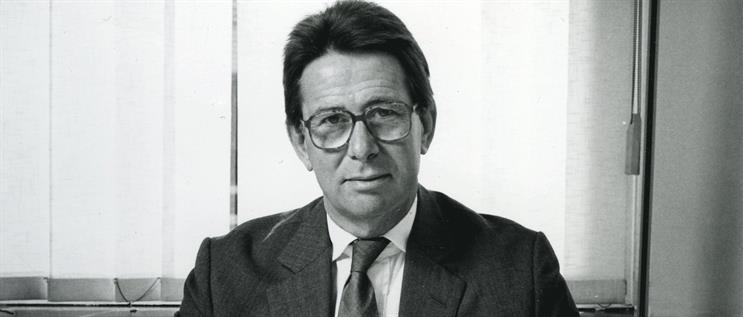There was a pot of pencils on the table. They looked really, really sharp. Maybe if I stuck one of them into my leg, then the meeting would have to end?
I now know that meetings never officially end until someone raises their eyebrows, slaps their thighs and says: "Cool." But this one had been dragging on for hours, so surely we were going to make something as a result?
Apparently not, because our idea wasn’t yet absolutely perfect. I had only been in the industry for a year or so and I desperately wanted to make this work, but it was becoming increasingly unlikely that we would be making anything at all.
I just didn’t get it. I was called a "creative" and I worked in a "creative" department, so surely our primary function was to create things? Der. The clue was in the name, right? But, here, we were talking about things we will never do.
Meanwhile, through the window, I could see a man strimming the lawn outside. He seemed to be actually doing something. He was getting paid to do a job and, there he was, buzzing that lawn like a badass.
I just didn’t get it. I was called a "creative" and I worked in a "creative" department, so surely our primary function was to create things? Der.
He would go home tonight and have a beer knowing he’d contributed. The grass was cut. Not perfectly, but it was cut. And that’s where our problem lay. We were in pursuit of perfection. Our idea was only 90% right. Or maybe even only 80% – I dunno. We had to keep going until it was faultless. Until everyone in research groups wept at its flawless beauty.
But, of course, perfection doesn’t exist. And, therefore, neither did our ideas. They had only ever been chemicals bouncing around in our heads. What a colossal waste of time.
Paralysis by analysis is a common problem in big organisations. They spend months in one big pointless circle jerk, researching, trialling, discussing, revising. It’s because all these things are easier than having the balls to actually do something.
If we truly mean it when we say we work in a creative industry, then we have to have the courage to try things. We simply can’t allow ourselves the chance that we may one day look back on our careers and wish we’d done more stuff.
People who buy business books at airports tell me this is called a "bias for action". I like it. Let’s get our 80% ideas out there and see how we get on. We can finesse along the way. As Steve Henry said, let’s learn from the tech industry and prototype things. Learn as we go.
If we truly mean it when we say we work in a creative industry, then we have to have the courage to try things.
Incidentally, this is not the same as "failing fast". This has to be one of the biggest fallacies in modern business. Sure, it sounds courageous to repeat as a corporate mantra – but really? I’m shit-scared of failure. It’s right up there with clowns and ventriloquist dummies in my list of frightening things.
Failure is for losers. And, besides, I’ve yet to meet a client who positively wants to crash and burn. Let alone one who wanted to hit the ground as soon as possible.
I was never fortunate enough to meet Paul Arden (pictured above), but I often think of something he said: "What’s a great idea? One that happens is. If it doesn’t, it isn’t." It’s so true.
Reminds me of when a friend of mine once wrote a book. He gave it to me, so I felt obliged to read it. It was really good. But, best of all, it existed. I could hold it in my hands, read his name on the front cover, flick through the pages, smell the print. It was a thousand times better than any of the books I had ever not written.
Bill Shankly, the legendary Liverpool manager, once said: "When you’re in the box and you’re not sure what to do with the ball, just pop it in the goal and we’ll discuss your options later." Yes! Love that too. Score goals. That’s what we have to do in life. Worldies from the edge of the box, ones that bounce off your arse and bobble in. They all count.
I think our jobs should be challenging, but I don’t think they need to be as complicated as we sometimes make it. Less of the thinking, less of the meetings. Much, much more of the doing.
Which reminds me… I was thinking of talking about going to Cannes. Then I started to actually talk about going to Cannes. Then I decided I just need to go and do Cannes. I really hope I see you there. *Raises eyebrows, slaps thighs* Cool.
Danny Brooke-Taylor is a founding partner at Lucky Generals


